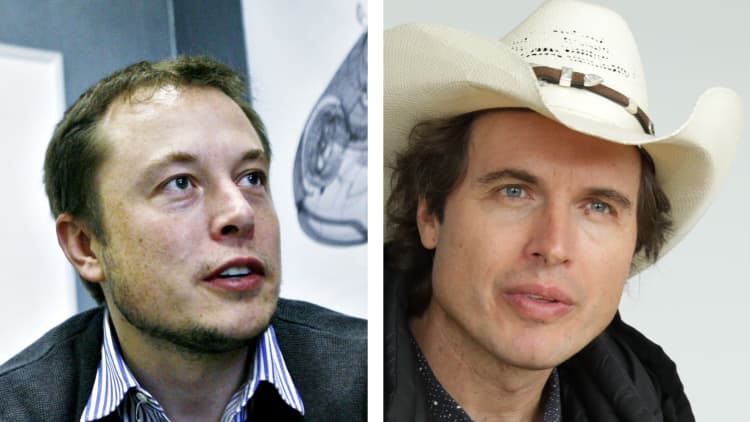Elon Musk's legacy is closely tied to the fate of his electric car company. But so is that of his brother.
Elon's brother Kimbal is also a Tesla board member, and he had a lot to lose during the Great Recession.
"This was in 2008," Kimbal recalls. "I mean, everyone thought the world was collapsing." Dealing with product delays, recalls, and a shortage of funds, Tesla looked like it could have followed General Motors and many other niche automakers over the years into bankruptcy.
"I had to decide whether to invest in Tesla and basically divest of all my other assets to do that, going to the point of bankruptcy and so forth," he says. Ultimately, he took the risk. "It was such a mission-driven company I couldn't really have forgiven myself if I didn't make the investment."
Considering how well Tesla has fared since, it's clear why Musk labels that decision the best investment he's ever made. But the uncertainty was worth more to him than just the dollar return. It taught him a lesson that he has applied to his latest ventures: His Boulder, Colorado, restaurant The Kitchen, and Next Door, a series of affordable farm-to-table restaurants whose mission is to improve nutrition and community farming across the country.
It taught him the value of outside investors.
"I think it's another thing I've learned since 2008 — we were self-funding so much of our businesses back then, and I'll never do that again," Musk says.
He points out that investors bring much more to the table than just funding.
"Having a broad network of investors is something that I've decided to do, you know, for all my businesses, because you want a good syndicate of folks around you when things are tough," he says. "I think even if you could do all your own funding you should go through the hard work of getting investors because the other thing investors do is that they give you true market feedback on whether what you're doing is correct."
For Musk's mission to help improve access to fresh food across America, that has meant making sure he can see results from the non-profit, community-oriented part of The Kitchen.
After observing that students become 26 percent more likely to eat vegetables served in the nearly 350 schools where Musk's Learning Gardens allowed students to grow their own produce, Musk was satisfied, and the project attracted interest from other underserved communities and donors.
"Most of our funding comes from local communities," says Musk. "If what we're doing isn't actually impactful then that funding will dry up. And so it's good to have outside funding, because it gives you accountability that what you're doing is actually really important and effective."
—Video by Mary Stevens



